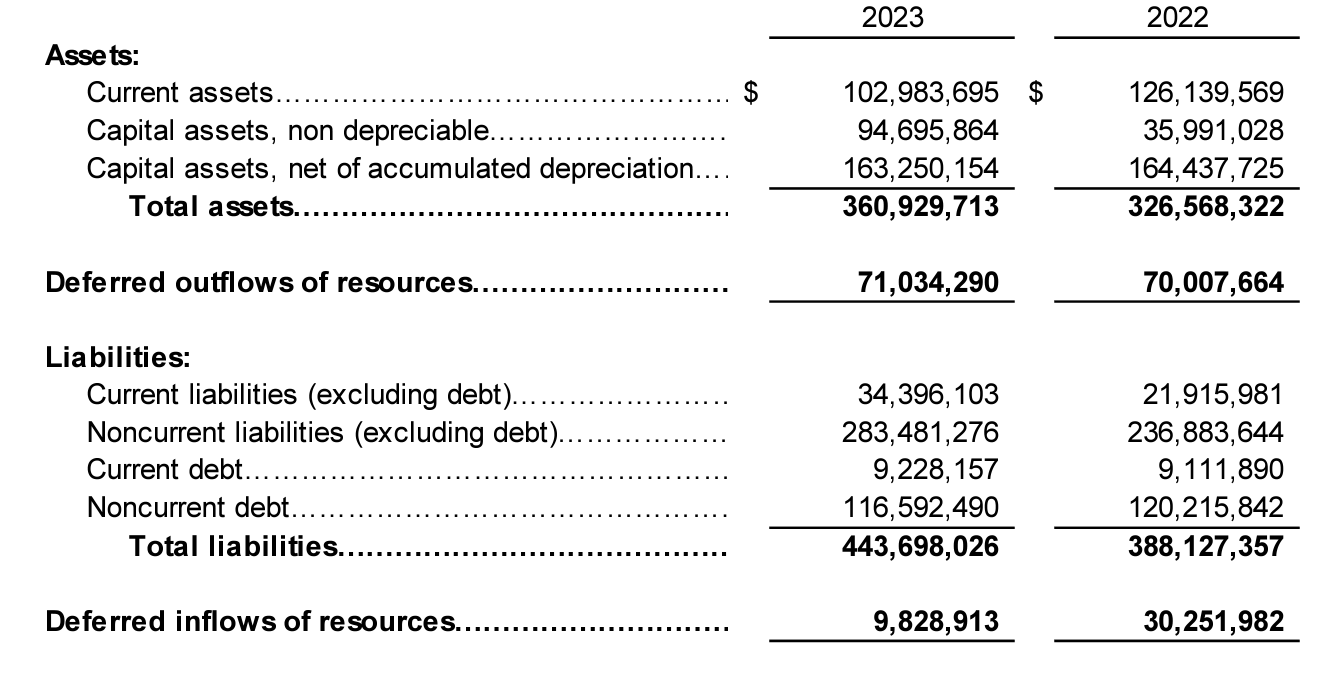OPEB in Braintree
A couple weeks ago I looked at a budget crisis request I got on tiktok from Hingham, MA, and learned a lot about the Massachusetts terrain. I got another request to look at Braintree, MA. Let’s get into it.
The big tension in these districts right now happens at the town level, specifically over whether there’ll be an “override” of the state law that caps tax increases at the local level by 2.5%. Town are struggling over whether and how to do overrides; that is, how much to raise local taxes on property. Since education is a huge expense, the struggle hits schools hard.
There’s a labor/capital dialectic here that manifests as property-owners (sometimes called ‘taxpayers’) vs. teachers unions. The latter negotiate for cost of living increases while the former cry foul, not wanting to pay them. The school district governments are sort of caught in between these powerful forces, tending towards the ‘taxpayers’ interests since the superintendent and school committee serve at the behest of the town council, while the teachers’ power pulls in the other direction with the threat of a strike.
Here’s what I’m seeing in the Braintree case. I looked at recent news coverage and then read through some aspects of the town’s most recent audited statements, getting a sense of the town’s finances overall.
Cut cut cut (and blame the teachers union)
The size of Braintree’s budget hole is $8 million. So they want to cut.
Cutting teachers, redistricting schools and doubling bus and sports fees are among the first round of school budget cuts proposed by Superintendent James Lee as he tries to erase an $8 million deficit.
His proposal includes cutting 21 classroom teachers and a total of seven reading and math specialists in the elementary schools, reductions that would require redistricting and result in class sizes of 23 to 25 students.
The bus fee would increase from $180 to $360 per student and from $360 to $720 per family. The fee for all high school sports except hockey would go from $212 to $412, with the hockey fee rising from $478 to $956.
Elementary school closures are on the table. Why? The old blame-the-teachers story:
Last May Braintree teachers won a new 3-year contract increasing salaries by 9 percent.
In Monday’s School Committee Meeting Braintree’s Superintendent explained:
“It’s a $5.2 million increase over last year,” he said.
Now teacher jobs could be on the line.
“This is where our money is. If we need to talk reductions we need to be talking about personnel because that’s where the money is,” said Superintendent Lee.
Usually, it’s more complicated than that: it’s easy for a superintendent to blame teacher salary increases for a budget crisis because the narrative is simple and bourgeois in a simple and bourgeois society.
But what’s actually happening here? Could the school committee push back? Is there a way out of the override impasse?
Is this about teachers salary increases?
If we believe the school committee leadership’s line, this is all about teachers’ salaries. So you might ask: well, how much of this financial situation is actually about the greedy teachers’ union? Not as much as other things.
Education expenditures increased from $125m to $132m, an increase of $7 million, yes, but that’s a small increase relatively. Public Safety got about $5 million more than the previous year. Are people asking about that? Public Works increased by $7 million, an 1.7x increase. Community Preservation increased by $1.2 million, more than quadrupling from the previous year.
Are we asking the same questions about all these other increases?

Also, some important context on town spending on education is that, in the audit report, it says explicitly that increases in education have to do with retirement cost increases, not salary increases. “The increase in expense is mainly related to changes in pension and OPEB during the current year.”
My understanding is that this retirement cost increase happens at the state level. So why should we blame local teachers when the cost increase for education is coming from the state’s retirement calculations—which, by the way, are based on Wall Street projects
It could be that the upcoming year’s budget includes these increases, but why should we believe that?
Other increases
When I look at the general financial situation of the town of Braintree, of which the School Committee is a committee, I see things I’d like to know more about. Overall, auditors think the town is doing okay/meh. While it owed more than it has by $21.6m, it’s “business-type activities” which include “water and sewer, golf course, electric lights” and other stuff exceeded liabilities by $146.6 million. Also the town’s debt decreased overall.
As of last year, the town’s general fund balance was up by $6.8 million, leaving $18.6 million “available for appropriation at the town’s discretion.” Did that money just disappear? If the Braintree schools’ budget crisis is about $8 million, can’t the town cover that with its discretionary monies left over from the fund balance increase?
There’s also a big decrease—more than three times, in fact—in deferred inflows of resources, from $30.2 million in 2022 to $9.8 million. The GASB defines these inflows as “an acquisition of net assets by the government that is applicable to a future reporting period. For example, deferred revenue and advance collections.” Those deferred inflows are money they’ll have in the future but not right now. Why’d it go down so much?

To me the big takeaway here is that financial auditors say the increase in education spending is coming from OPEB not teacher salary increases, there seems to be a general fund balance that leaves more than enough to cover the budget crisis, and there are some questions about deferred inflows of resources to the town overall.
So…not exactly teachers’ salaries but rather an increase across the board for local services, along with a not insignificant general fund balance that could be used to cover the increases.